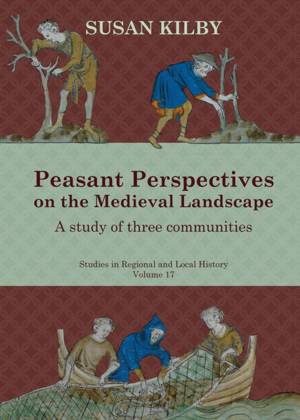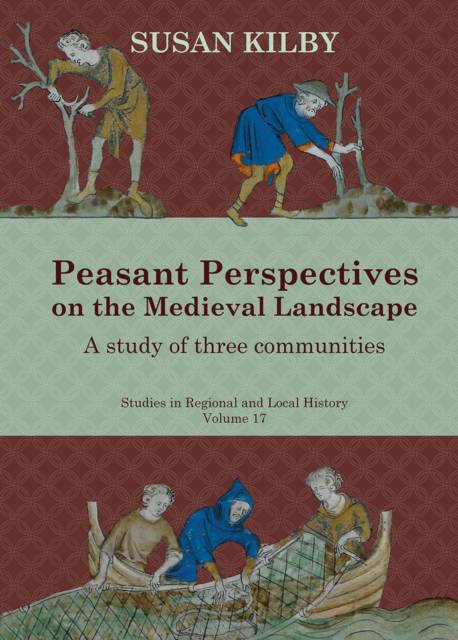
- Afhalen na 1 uur in een winkel met voorraad
- Gratis thuislevering in België vanaf € 30
- Ruim aanbod met 7 miljoen producten
- Afhalen na 1 uur in een winkel met voorraad
- Gratis thuislevering in België vanaf € 30
- Ruim aanbod met 7 miljoen producten
Zoeken
€ 32,95
+ 65 punten
Uitvoering
Omschrijving
This compelling new study forms part of a new wave of scholarship on the medieval rural environment in which the focus moves beyond purely socio-economic concerns to incorporate the lived experience of peasants. For too long, the principal intellectual approach has been to consider both subject and evidence from a modern, rationalist perspective and to afford greater importance to the social elite. New perspectives are needed. By re-evaluating the source material from the perspective of the peasant worldview, it is possible to build a far more detailed representation of rural peasant experience. Susan Kilby seeks to reconstruct the physical and socio-cultural environment of three contrasting English villages--Lakenheath in Suffolk, Castor in Northamptonshire, and Elton in Huntingdonshire--between c. 1086 and c. 1348 and to use this as the basis for determining how peasants perceived their natural surroundings. In so doing she draws upon a vast array of sources including documents, material culture, place-names and family names, and the landscape itself. At the same time, she explores the approaches adopted by a wide variety of academic disciplines, including onomastics, anthropology, ethnography, landscape archaeology, and historical geography. This highly interdisciplinary process reveals exciting insights into peasant mentalities. For example, cultural geographers' understanding of the ways in which different groups 'read' their local landscape has profound implications for the ways in which we might interpret evidence left to us by medieval English peasant communities, while anthropological approaches to place-naming demonstrate the distinct possibility that there were similarities between the naming practices of First Nations people and medieval society. Both groups used key landscape referents and also used names as the means by which locally important history, folklore, and legends were embedded within the landscape itself. Among many valuable insights, this study also reveals that, although uneducated in the formal sense, peasants understood aspects of contemporary scientific thought. In addition to enhancing academic understanding of the lived experience, this new approach augments our comprehension of subjects such as social status, peasant agency, peasants' economic experiences, and the construction of communal and individual memory. Susan Kilby's groundbreaking study enables us to reclaim significant elements of the environment inhabited and traversed by English people over 700 years ago.
Specificaties
Betrokkenen
- Auteur(s):
- Uitgeverij:
Inhoud
- Aantal bladzijden:
- 192
- Taal:
- Engels
- Reeks:
- Reeksnummer:
- nr. 17
Eigenschappen
- Productcode (EAN):
- 9781912260218
- Verschijningsdatum:
- 2/11/2020
- Uitvoering:
- Paperback
- Formaat:
- Trade paperback (VS)
- Afmetingen:
- 168 mm x 241 mm
- Gewicht:
- 517 g

Alleen bij Standaard Boekhandel
+ 65 punten op je klantenkaart van Standaard Boekhandel
Beoordelingen
We publiceren alleen reviews die voldoen aan de voorwaarden voor reviews. Bekijk onze voorwaarden voor reviews.











